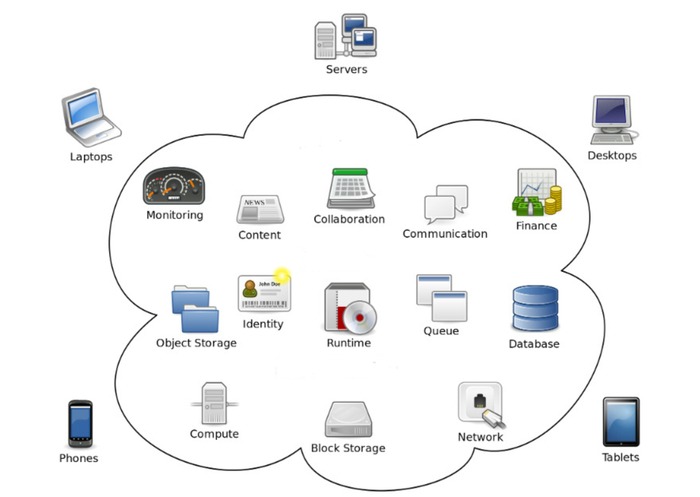Did you know that over 80% of online businesses fail due to inefficiencies in their operations? One of the most common culprits is the lack of proper e-commerce integrations and without the right tools working together seamlessly, businesses face obstacles like wasted time, missed opportunities, and frustrated customers. In this post I’ll walk you through the essentials of e-commerce integrations, why they matter, and how they can transform your online business into a well-oiled machine.
At its core, an e-commerce integration is the process of connecting your online store with other tools and platforms that manage various aspects of your business. Think of it as creating a unified ecosystem where everything works together effortlessly. Whether it’s your inventory management system, payment gateway, shipping provider, or customer relationship management (CRM) software, system integrations ensure these components talk to each other efficiently.
For example, imagine running a clothing store online. If your sales platform doesn’t sync with your inventory system, you might end up selling products you don’t actually have in stock, an inevitable result to frustrate your customers. On the other hand proper integration can automatically update stock levels, ensuring accuracy and boosting customer satisfaction.
The Benefits of E-commerce Integrations

1. Streamlined Operations
Integrations eliminate the need for manual data entry, saving you time and reducing the risk of human error. When your sales data flows directly into your accounting software, for instance, you can focus on growing your business instead of crunching numbers.
2. Enhanced Customer Experience
A smooth checkout process, real-time updates on order status, and personalized recommendations, these are all benefits that come with well-integrated systems. Customers appreciate convenience, and integrations help you deliver it effortlessly.
3. Scalability
As your online business grows, managing multiple systems becomes increasingly complex. Integrations allow you to scale without getting bogged down by operational headaches.
4. Data-Driven Decisions
When your systems are connected, you gain access to comprehensive data insights. This allows you to track performance, identify trends, and make informed decisions to drive growth.
Key E-commerce Integrations to Consider

1. Payment Gateways
Your payment gateway is the lifeblood of your online business. Integrating it with your e-commerce platform ensures seamless transactions and improved security. Popular options like PayPal, Stripe, and Square offer customized integration solutions that make APIs integration straightforward.
2. Inventory Management Systems
An inventory management system integration helps you avoid overselling or underselling by keeping your stock levels up to date across all channels. Tools like TradeGecko or DEAR Inventory can synchronize your stock data with your store in real time.
3. Streamlining Operations
ERP integration services (Enterprise Resource Planning), connect platforms like SAP, Oracle, or Microsoft Dynamics, ensuring real-time synchronization of key data: such as inventory, orders, and financials across your e-commerce and enterprise systems. By eliminating manual data entry and reducing errors, these integrations streamline workflows, enhance efficiency, and support better decision making.
4. Customer Relationship Management (CRM)
Integrating a CRM like HubSpot, Salesforce or Zoho with your online business helps you manage customer interactions more effectively. From personalized email campaigns to targeted promotions, CRMs enable you to enhance customer loyalty.
5. Marketing Automation Tools
Platforms like Mailchimp or Klaviyo allow you to create automated campaigns based on customer behavior. When integrated with your store, they can send abandoned cart emails, upsell recommendations, and other personalized messages automatically.
6. Shipping and Fulfillment Solutions
Customers expect fast and accurate shipping. Shipping and logistics integrations link your store with carriers such as FedEx, UPS, and DHL, offering real-time shipping rates, shipment tracking, and efficient order fulfillment processes.
Best Practices for Successful E-commerce Integrations
1. Start with Your Business Goal
Before diving into integrations, take a step back and define what you want to achieve. Are you looking to save time, improve customer experience, or increase sales? Having clear objectives will help you prioritize the right integrations for your needs.
2. Choose Scalable Solutions
Invest in tools that can grow with your business. While it might be tempting to go for cheaper options initially, they could become a bottleneck as your online business expands. Look for platforms with robust integration capabilities and customizable features.
3. Test Before Going Live
Once you set up an integration, test it thoroughly. Does the inventory update in real-time? Are payments processed securely? Ensuring everything works as expected will save you headaches down the line.
4. Monitor and Optimize
Integrations need continuous upkeep to remain effective. Regularly monitor their performance and look for areas to optimize. For example, if your email marketing integration isn’t driving engagement, it might be time to adjust your strategy or switch platforms.
Common Challenges and How to Overcome Them

1. Compatibility Issues
Not all tools are designed to work together seamlessly. To avoid this, research compatibility before investing in any platform. Many modern e-commerce tools offer pre built integrations or APIs that make the process easier.
2. High Initial Costs
Some integrations require upfront investment, both in terms of money and time. While this might seem daunting, remember that the long term benefits like efficiency and scalability outweigh the initial costs.
3. Data Security Concerns
When integrating multiple systems, data security becomes crucial. Work with trusted providers and ensure they adhere to industry standards for encryption and compliance.
With so many options available, picking the right tools can feel overwhelming. Here’s a simple approach to streamline the process:
- List Your Requirements: Identify what your business needs most, whether it’s inventory tracking, CRM, or marketing automation.
- Read Reviews and Case Studies: See what other businesses in your industry are using and how these tools have impacted their operations.
- Take Advantage of Free Trials: Most platforms offer free trials or demos. Use these to test compatibility and functionality before committing.
- Consult Experts: If you’re unsure, consider hiring a consultant who specializes in e-commerce integrations. Our expertise ensures efficiency and accuracy in every step of your operations.
Future Trends in E-commerce Integrations
1. AI and Machine Learning
AI powered tools are becoming increasingly common in e-commerce. From predictive analytics to personalized shopping experiences, integrating AI can give your business a competitive edge.
2. Omnichannel Integration
Consumers expect a seamless experience across all touchpoints, whether they’re shopping on your website, social media, or in store. Omnichannel integration ensures consistency and convenience.
3. Blockchain for Payments
Blockchain technology is revolutionizing online payments with its secure and transparent framework. As it becomes more mainstream, integrating blockchain based payment systems could be a game changer for your online business.
Final Thoughts
E-commerce integrations are no longer optional—they’re essential for running a successful online business. The right tools and strategies can streamline operations, enhance the customer experience, and drive long-term growth. The key is to start with clear goals, choose scalable solutions, and continuously optimize your integrations.
Ready to unlock the full potential of your online business? Our solutions are designed to enhance efficiency and support your growth.


1 thought on “Understanding E-commerce Integrations for Your Online Business”
Comments are closed.